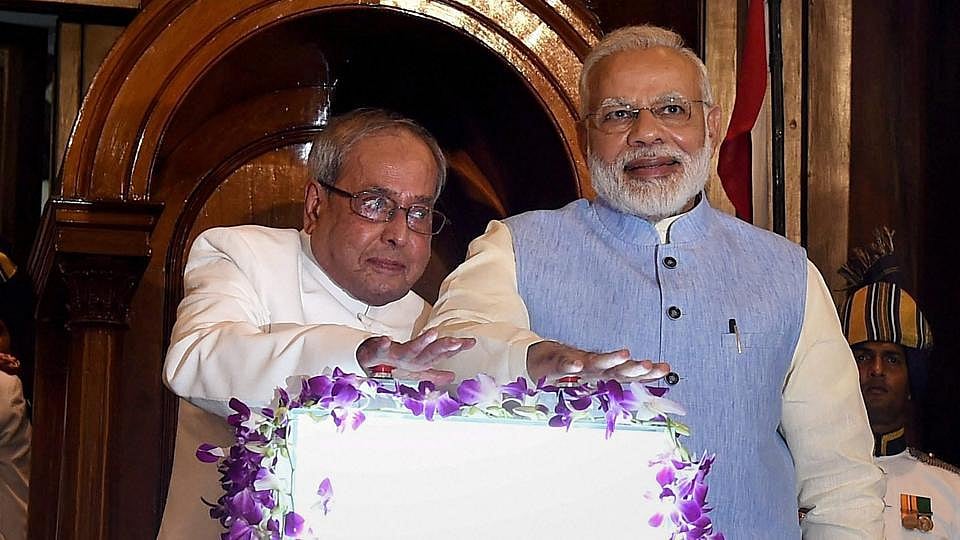
GST’s Critics, Ex-FMs Included, Make The Good The Enemy Of The Best; It’s Largely Hot Air
If you want to end complexity, try fixing the Constitution first and the overlapping nature of the laws it mandates.
Blaming GST for complexity is hardly kosher when complexity is built into the Indian constitutional DNA.
Let us start by granting that the transition to the goods and services tax (GST) will be painful over the next few months as businesses, big and small, and the backbone GST Network learn to cope with the new regime. Let us also grant that the GST, in its current form, is far more complex than ideal. It has too many tax rates, and product categories (3 per cent, 5 per cent, 12 per cent, 18 per cent, 28 per cent, and a cess above that for luxury goods and services).
And yet, one wonders why even smart politicians think they need to tell us the obvious, and prefer to pontificate on what GST should have been. From former ministers P Chidambaram to Arun Shourie, from various non-BJP political parties to assorted intellectuals, the lament is about the good enough not being the ideal.
This is what Nassim Nicholas Taleb would probably call the Intellectual Yet Idiot (IYI) position, where the elite and the expert are in love with theoretically correct positions as opposed to the practical and doable. Everyone, and the dog at the lamp-post, knows that in India’s complex democracy, the current version of the GST is the best compromise possible, and, with some luck, it can be steadily improved upon as we gain from experience and learn what works, and what doesn’t.
Now consider what former finance minister Chidambaram had to say about GST: “This is not true GST... not one designed by experts... not our (Congress) ideal (lakshya) GST. It has many defects and its implications will be known only in due course… What has come into force today is really not GST. GST is one tax, and only one tax,” he is quoted by The Economic Times as saying.
Maybe, Chidambaram should shift base to a tropical island with 50 inhabitants and experiment with his ideal version of GST and tell us the results.
He has a problem even calling GST GST. So, let’s call it Tax X.
And does he believe that shifting in one leap to one rate of tax is going to be a breeze? And wouldn’t that too have its own “defects and implications?” And wouldn’t a single tax rate not be regressive, where rich and poor pay the same rate for the same goods?
This is criticism for the sake of criticism.
Then we had Arun Shourie, once upon a time an aspirant for a ministerial job in the Modi government. Everything is now sour grapes for him. His reaction to the GST event that happened in the central hall of parliament on the midnight of 30 June: “GST is just a tax and this government is putting it at par with the independence of India.”
This is exactly how Anand Sharma of Congress articulated the other day. One wonders whether there is any reason why the central hall should be used only for I-day celebrations and jubilees? And if GST is going to change many things, what is wrong in using the hall to emphasise the importance of the change?
In Narendra Modi, we at least have a Prime Minister, who is willing to sell his reforms to the public. He is doing the same with GST. So what is the crime in this if the central hall is used to start the communications process?
Again, it seems that criticism is determined not by reasoned argument, but whether you like this dispensation or not.
Another intellectual claimed on twitter that the launch of a new tax is no cause for celebration. Which is fine. No one is asking anyone to celebrate a new tax. But is GST just another tax, another burden on the people? It is a tax to replace many other taxes, and will ease the way for doing business. If it works, it would be reason to bring out the bubbly.
The truth is that in India’s complex polity, it is impossible to arrive at the exact right solution for almost any issue.
If you have any doubts on that look at our Constitution. It is the most complex document in the world.
The US got by with a 4,500-word constitution; even with all the subsequent amendments, it managed to reach just about 7,500 words.
And India’s Samvidhan? A massive tome of over 145,00 words, made more complex by contradictory objectives, where every major clause promising great rights ends in a whimper, with exceptions and provisos that begin with the phrase “nothing in the above article/clause…” shall prevent the state from doing something other than what the article prescribes.
Article 19, which gives us all our freedoms, has as many as five references intended to specifically nullify the freedoms given in multiple circumstances.
Little wonder, in over 240 years of independence, the US amended its constitution roughly once a decade; in India, we propose two constitutional amendments every year!
If you want to end complexity, try fixing the Constitution first and the overlapping nature of the laws it mandates. Blaming GST for complexity is hardly kosher when complexity is built into the Indian constitutional DNA.